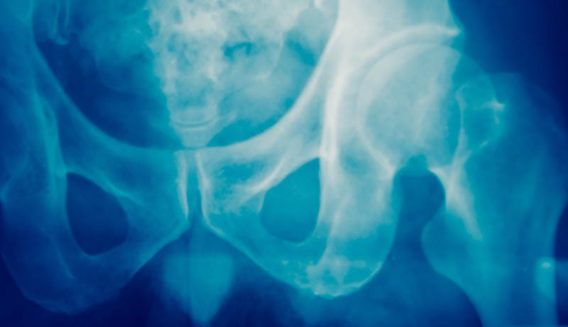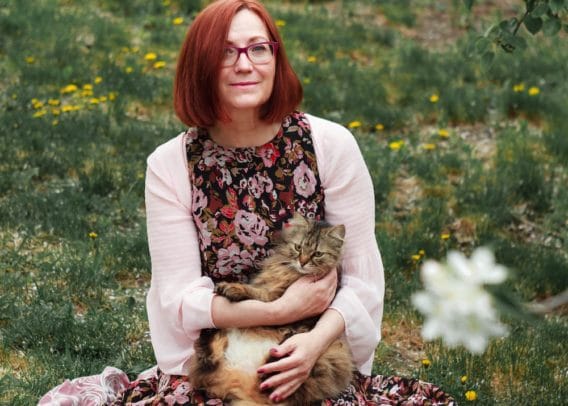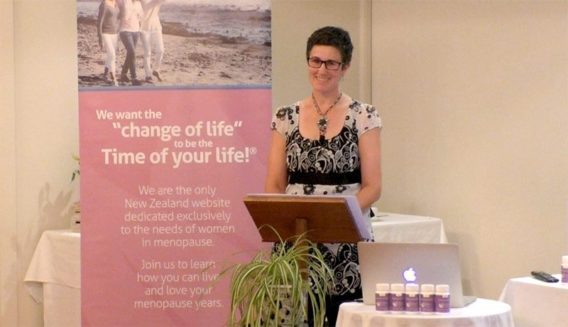
7 Ways To Grow Older Well
Reaching peri/menopause usually means we’re growing older, it’s part of our feminine life cycle. While there are cases of premature menopause, as a rule, it means we’ve reached age 40 or

Reaching peri/menopause usually means we’re growing older, it’s part of our feminine life cycle. While there are cases of premature menopause, as a rule, it means we’ve reached age 40 or

We get lots of questions from you about peri/menopause so we’ve put eight of the most asked together. 1. What’s the difference between perimenopause, menopause and post-menopause? Most people, even

Today we’re going to talk about bones. And more specifically osteoporosis, because it’s something we all need to know about. Especially if we’re in pre-, peri- or post-menopause. If there’s

Turning 50 heralds the beginning of a new life stage for women. It’s the point when our fertile years come to an end, and we move on to the next

Heart disease is the biggest killer of women in the world and accounts for 35 percent of female deaths. And women in post-menopause are particularly vulnerable to heart disease. Eek! I know, right?

So many of you have asked us if breast cancer is more common during menopause. And the answer is yes, because one of the highest risk factors for a breast

Heeeeelllloooo, what do you think of the term second spring to describe menopause? Isn’t this Chinese term for menopause beautiful – your second spring? Well, we think so anyway. Indeed,

Let’s take a look at five things to look forward to in menopause. Or, rather post-menopause. Although it’s changing (finally), society kept us in the dark for decades. In fact,

Magnesium. Also known as the ‘mighty mineral’, magnesium is vital to wellbeing which is why we’ve included it in 55+. In this story we’ve given you the lowdown on the

I am woman. Hear me ROAR about peri and post-menopause. And mood swings, lack of libido, dry vagina’s and finding your power because these things are real! When it comes

Contrary to what the image of a post-menopausal woman typically used to be, this generation of women are standing up, taking charge and inspiring men and women of all ages all over the world.

I was sitting having a coffee while I waited for my car to get serviced recently so I opened a book that’s been on my bedside table waiting to be

How will post-menopause change your life? We’re so glad you asked. Because post-menopause leads to several physiological changes and there are some health factors it’s smart to be mindful of.

A new study tells us that women feel less stress as they grow older. Isn’t that good news? Hallelujah! Sayonara stress. 👋 We won’t miss you. That may sound a little bit

One of our goals at MenoMe® is to encourage women to talk more about menopause. And by talking I don’t mean the usual jokes or a quick mention about hot flushes.

When talking about the gift of menopause among friends and family I have heard some women say “I never went through menopause”. This is like saying “I never went through
At MenoMe®, Menopause is our one & only game®. We live and breathe it – ’cause we’re going through it too or we’ve gone through it, and we totally get it! We’ve got your back and we promise to add a sprinkle of laughter to this rollercoaster ride!
Meno-Me Ltd
Unit 3/10 Makowhai Road,
R.D. 12, Hawera,
New Zealand.
Free call: 0508 MenoMe
Email: info@meno-me.com
Contact us here…
MenoMe®, LotsaLocks®, Merry Peri®, Perky Post®, Happy Go Tummy®, Women on Fire® , Mini Pause® and Menopause is our one & only game® are registered trademarks owned by Meno-Me Limited.
affron® is a registered trademark of Pharmactive Biotech Product, S.L.U.
keraGEN-IV® is a registered trademark of Keraplast Manufacturing.
Livaux® is a registered trademark of Anagenix IP Limited.
🎉 Special Offer Alert! 🎉
Buy any Merry Peri or Perky Post 120s and get a FREE Hormone Harmony (HGT) 120 on us!
Because balancing your hormones should feel like a bonus, not a battle. 💛
💊 Stock up. 🎁 Get rewarded. ✨ Feel amazing.
This is the time when menstruation is well and truly over, the ovaries have stopped producing high levels of sex hormones and for many ladies, perimenopause symptoms subside.
Estrogen has protective qualities and the diminished levels mean organs such as your brain, heart and bones become more vulnerable. It’s also a key lubricant so your lips may become drier, your joints less supple and your vagina might be drier. In addition, your thyroid, digestion, insulin, cortisol and weight may alter.
At this juncture, a woman might experience an increase in the signs of reduced estrogen but she should have a decrease of perimenopause symptoms. That said, some women will experience symptoms like hot flushes for years or even the rest of their lives.
Peri = ‘near’
Most females begin to experience the symptoms of perimenopause in their mid-forties. Your progesterone levels decline from your mid-30s but it’s generally from around 40 that the rest of your sex hormones begin to follow suit.
Perimenopause is a different experience for every woman and some women may barely notice it. The first indicators are usually changes to the monthly cycle. This means that for some ladies, this can be accompanied by things like sore breasts, mood swings, weight gain around the belly, and fatigue as time goes on.
For those with symptoms it can be a challenging time physically, mentally and emotionally.
Importantly, perimenopause lasts – on average – four to 10 years. The transition is usually a gradual process and many women enter perimenopause without realising.